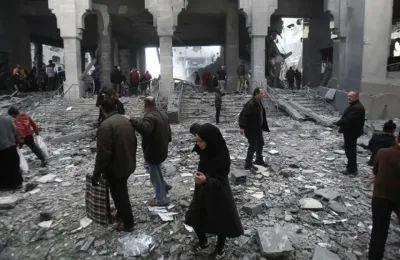Eyl, Somalia – Hawa Mohamed Saeed recites a prayer in a barely audible voice as she…

Dressed in red flowing garment from top-to-toe, Hawa, 80, paces gingerly back and forth in front of a white-washed stone house with a corrugated tin roof perched on top of a mountain in the picturesque town of Eyl, in Somalia’s northeast.
Colourful prayer beads play in one hand, an old battered mobile phone in the other.
The elderly woman is awaiting news of her son who is jailed in Yemen. Farhan Mohamed Jaama – a convicted Somali pirate serving life behind bars – hasn’t called in months.
Once in a while when the waiting gets unbearable, Hawa finds the courage to call him on the smuggled phone he hides, taking a chance the no-nonsense Yemeni prison guards won’t find him answering her call.
“He was a seaman just like most people in this town, he used to go out to sea and sell the catch,” Hawa told Al Jazeera. “Our life was good. He did not only provide for us, but also for his relatives who live in towns and villages far from here. He used to pay for their rent and school fees.”
More than 1,300 young Somali men have been jailed in prisons abroad for piracy since 2005. Most have been sentenced to life in jail.
Pirate capital
Eyl – an ancient town sandwiched between the blue warm waters of the Indian Ocean on one side, and the rolling Nugaal mountains on the other – was until recently known as Somalia’s piracy capital.
This once well-to-do town has fallen on hard times. Eyl has paid the heaviest price, and continues to do so.
With the seas empty of fish because of toxic waste dumping and illegal fishing by foreign trawlers – and the soil too rocky and barren to support farming – residents have run out of ideas on how to support themselves.
They have exhausted all options. Prayers at the local mosque are all that is left in their armour. The abandoned crumbling homes are a clear sign that many have given up and left.
“Life has turned for the worst, first our central government collapsed, then the sea got polluted by foreigners using it as dump site that killed most of the fish,” Hawa said.
“Life became tough not only for us but most of the people in this town. Then the little fish that was left was swept clean by the trawlers – illegal trawlers.”
Read full article al-jazeera website







